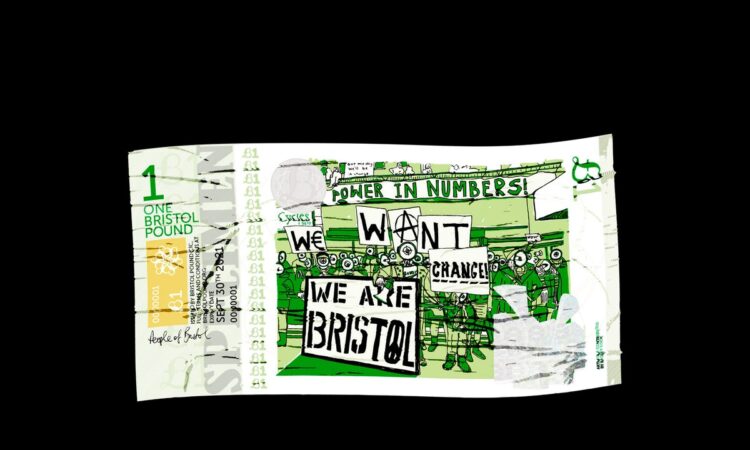
“Once that’s gone you have to move to a subscription model or you have an app through which you try to take a small percentage of payments, a little like a credit card business. The trouble is, the proportion you make from transfers in an app is so tiny, it won’t keep the lights on. Plus businesses don’t want to pay a subscription fee to accept local pounds.”
As Bristol attempts to rise from the ashes before next year’s cut-off point – when the equivalent of a ‘sell by’ date on its notes run out and they must be spent or converted back into sterling – it is keeping a close eye on the tactics used by a different currency: the Hull Coin. Organisers decided to make Hull’s currency a digital token awarded by local authority bodies, such as hospitals and schools, for volunteers and those people who were doing good deeds. After funding dried up, a new scheme is about to be announced.
Peter Kemp, a Hull coin volunteer, says there are plans to launch a new project called the Community Coin in the next couple of months By Christmas, he claims, local authorities will be awarding its digital coins in a region that he dubs “the M62 corridor”, stretching from Hull across to Liverpool. “We’re not trying to be a currency, we’re a coin token schools, hospitals and local authorities can award citizens for discounts at participating businesses,” he says.
“If someone quits smoking, does really well at school or volunteers in their community, they can be rewarded with the digital coins which they can use to get some money off from a café, or their weekly shop. We even had one deal with Hull Coin where you could get a 90 per cent discount on broadband installation.”
Being digital will get around the huge problem local currencies have: it will be trackable, and won’t be sitting around waiting to be converted back into sterling, because the coins are not linked to a currency and so hold no value. That opens up another opportunity for people to take on voluntary work and be rewarded by the digital tokens without it affecting their benefit entitlements.
If local businesses will not pay for the schemes that were claiming they would save the high street, the only alternative is helping local authorities save the environment. Complementary currencies have clearly failed to save the high street, now they have their sights set on saving the environment instead, maybe with a little thanks dispensed to those quitting smoking, getting good marks at school and volunteering in their community. Just as people don’t need a local currency to shop locally, do they need digital rewards to encourage them to live responsible lives? The future of local currencies could well depend on the answer.
Updated 05.03.20, 11:30 GMT: The Lewes pound was incorrectly included in the list of local currencies that had ceased to exist.
Digital Society is a digital magazine exploring how technology is changing society. It’s produced as a publishing partnership with Vontobel, but all content is editorially independent. Visit Vontobel Impact for more stories on how technology is shaping the future of society.
More great stories from WIRED




 How
How  Follow WIRED on
Follow WIRED on 


